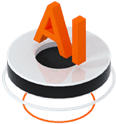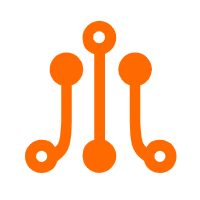By Michael Njunge
Artificial Intelligence (AI) has come a long way since it was first theorized in the 1950s. The first 50 years of machine learning research saw little progress, so much so that the task was thought nearly impossible, and the late 20th century was dubbed an AI winter. However, if the late 20th century was winter, then the early 21st century has been a veritable AI summer. From image generation and personalized speech recognition to AI investing and fraud detection, machine learning applications are now ubiquitous in everyday life. Two fields where AI has massive potential are the wellness industry and (my) professional field of medicine. AI in the wellness industry poses the new frontier of fitness technology and personalized health plans. In medicine, AI has a role to play at nearly every level, from research to diagnosis and treatment. This article will discuss some exciting AI developments in the wellness and healthcare industries.
Early fitness technologies came from resistance training and cardiovascular machines accessible via a gym. Home exercise equipment signaled the next evolution of fitness technology, making these machines portable and affordable. Now we have the latest iteration of fitness tech; smart machines and weights. Examples include dumbbells that can change weight and treadmills or bikes that can stream video and simulate being in an exercise class. However, one area of the fitness industry that has remained strictly a person-to-person practice is personal training. You go to a personal trainer to set up a program and work with them one-on-one to make sure you're doing everything correctly. This has remained popular because it ensures you get personalized workout plans and feedback on your performance, but this too is headed for an intelligence revolution.
Enter AI personal trainers. Systems like Alibaba AI Sports combine camera tracking with machine learning to give you a true-to-life personal training experience. The AI locates key points on the body (such as joints and limbs) and analyses body contour with live video. Then, the system compares your movements to a perfect technique it has been trained to recognize. This enables it to give real-time feedback on your workout form. As this technology improves, it will give you feedback, monitor your progress, and adjust your program to suit your personal fitness needs. Also, since they're AI programs, they can constantly learn and improve, making them an even more valuable resource over time.
The global wellness industry is forecasted to grow by 9.9% yearly, with an estimated value of over $6 trillion by 2025. This is not surprising, as the wellness industry attempts to address all aspects of self-care essential to holistic physical and mental health. One of the largest sectors within the wellness industry is nutrition and weight loss. This sector in particular has exploded with the ubiquity of mobile phones and app usage. It's estimated that over 90 million people in the US alone use a calorie-tracking mobile app. Given the huge opportunity for big data, it's no surprise that this industry is innovating aggressively in AI technology.
With nutrition specifically, AI platforms are being developed that can combine population data with an individual’s dietary habits and health metrics. This way, the AI can create personalized nutrition and weight loss plans. Over time the AI can track a person's progress and adjust recommendations based on evolving goals and health metrics. This means people can access tailored health plans based on real data rather than generic advice offered by conventional health apps. This represents a huge step forward in terms of empowering people to manage their health in a data-driven way and will hopefully lead to overall better health outcomes down the line.
The landscape of medicine is constantly evolving. There are new diseases every year, which present new diagnostic and therapeutic challenges. Therefore, healthcare systems must constantly innovate to improve outcomes for patients. One example is the recent COVID-19 pandemic, which required us to rethink how we diagnose and treat infectious diseases.
Although COVID-19 presented a diagnostic mountain, AI proved itself as a helpful guide through the jungle of uncertainty. One way AI proved its worth during the pandemic was in its ability to automate the diagnosis of COVID-19 on CT scans. One such AI was Alibaba Cloud's CT Image Analysis. The technology identified the characteristics of coronavirus pneumonia on CT scans with about 96% accuracy and only took 3-4 seconds, 60 times faster than human detection. This means the AI is incredibly efficient while maintaining high accuracy.
Poorly understood and rapidly evolving novel diseases have the potential to unbalance the healthcare system. But, as shown, AI has the potential to re-level the playing field with its rapid, automated, and accurate diagnostic capabilities.
Cancer continues to represent a large burden on the healthcare system worldwide. The challenge of diagnosing cancer is significant, as cancer can often present with very few subtle symptoms, especially in the early stages. As such, the world has increasingly turned to imaging to diagnose cancer. Whilst imaging is effective in diagnosing early cancers, the volume of scans far outweighs the number of capable radiologists to read the scans. This means there is the potential for delays between scans being performed and scans being read. This presents a problem, as catching cancer early offers the best chance for survival.
One exciting solution to this problem is using AI in image-guided cancer detection. AI has already been shown to effectively detect cancerous lung nodules on CT scans. Lung nodules are relatively easy to detect, but lung nodules represent the limits of AI platform abilities. However, new AI platforms that can diagnose more complex and subtle nodules are emerging, such as small liver nodules. This is significant as the liver is a more complex organ than the lungs, and nodules are more difficult to visualize against the normal background liver tissue. As innovation in this field continues, hopefully, we will reach the point where we will have AI platforms that can diagnose small nodules in any body organ. This is especially important in developing countries that may lack the number of trained radiologists needed to keep up with imaging demands. AI presents an incredible opportunity to increase the efficiency of diagnosis, cut costs, and improve long-term outcomes in the field of cancer.
It is necessary to have robust drug research and development pipelines to provide novel healthcare solutions. However, the process of drug research and development is complex and expensive. It can take many years and millions of dollars to develop one drug. The high cost and risk associated with drug research mean there is a bottleneck in new and effective treatments. This is especially significant in view of the recent COVID-19 pandemic, which demanded that the world perform viral analysis and drug development at a record pace.
There is huge potential for AI to cut the time and cost associated with drug research and development. AI has the potential to process large swathes of data, which may be too unwieldy otherwise. For example, AI, in conjunction with High-Performance Computing (HPC), can rapidly speed up whole genomic sequencing, enabling the rapid identification of potential novel microbes. This is important as understanding the genetic makeup of a new microbe is an essential first step to creating a treatment. Beyond genomics, HPC-AI also has the power to rapidly speed up drug research by providing powerful modeling and computational drug design. This speeds up development but also cuts costs. There is no doubt AI will continue to become a more integral part of the drug development process.
AI is quickly becoming a major driving force behind the personal health and healthcare industries. We can create more accurate personalized plans tailored specifically for each user's needs and improve the speed and efficiency of the healthcare system at nearly every level by harnessing the power of machine learning algorithms and data-driven insights. As more companies invest in developing innovative solutions using artificial intelligence, there’s no doubt this technology will continue to revolutionize how we think about health moving forward.
1 posts | 0 followers
FollowAlibaba Clouder - April 29, 2020
Amuthan Nallathambi - May 12, 2024
Alex - July 9, 2020
Alibaba Cloud Community - November 20, 2025
Alibaba Clouder - June 12, 2018
Amy - October 8, 2022
1 posts | 0 followers
Follow Big Data Consulting for Data Technology Solution
Big Data Consulting for Data Technology Solution
Alibaba Cloud provides big data consulting services to help enterprises leverage advanced data technology.
Learn More Big Data Consulting Services for Retail Solution
Big Data Consulting Services for Retail Solution
Alibaba Cloud experts provide retailers with a lightweight and customized big data consulting service to help you assess your big data maturity and plan your big data journey.
Learn More AI Acceleration Solution
AI Acceleration Solution
Accelerate AI-driven business and AI model training and inference with Alibaba Cloud GPU technology
Learn More ApsaraDB for HBase
ApsaraDB for HBase
ApsaraDB for HBase is a NoSQL database engine that is highly optimized and 100% compatible with the community edition of HBase.
Learn More